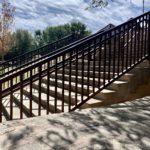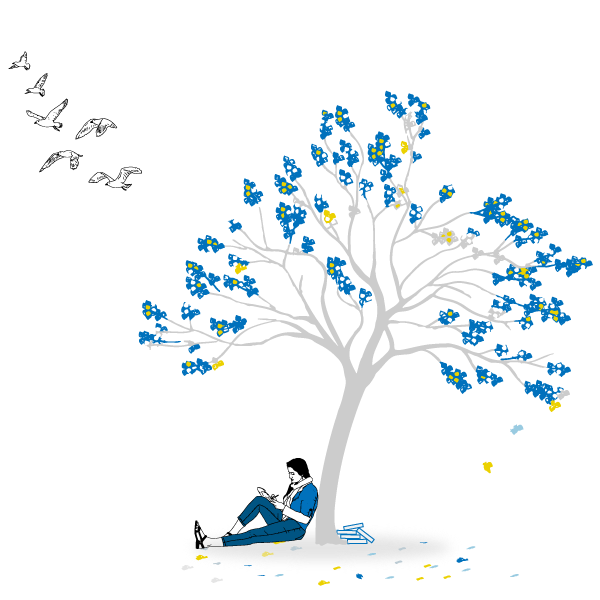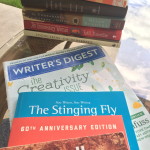Reading to Ask Better Questions.
I wanted to share some happy news, but I also wanted to share some questions I have been wondering.
The good news is that my novel was a runner up in Blue Pencil Agency’s 2020 Pitch Prize!
There were over 400 entries, and to go from the long list of 24 to a short list is very encouraging. This means I will be receiving a report on the opening section of the manuscript and an editorial session with a member of the BPA team.
I have been thinking about how some people, myself included, are continuing to write (and would have continued even if I didn’t make the long or short list), make music, create art, and “show up” for themselves and others, while many folks right now, including some people in my own neighborhood, simply can’t fathom checking their mail or smiling.
Assuming all things being equal (food, health, a place to live, safe domestic environment, steady income), how is that some people are faring better than others? Is it they have a support network? Is it DNA? Is it use of, or lack thereof, substances? Is it exercise? What is it? Resilience is not a good enough answer for me. I had a student ask the other day, How come some people give up and others don’t? I tried to sound clever, but I couldn’t come up with something adequate. Is it faith? Is it previous experiences?
The word ‘experiences’ provided a trajectory. We are not all having the same experience. This is true even if people are in the same household. If you have children, your fourteen-year-old missing friends is different than your eighteen-year-old feeling stuck at home instead of being at college. If you have always worked from home, maybe it’s much more challenging now than when everyone left for the day. Equally important to consider is that even counties within each state in the U.S. have different mandates. Additionally, unlike other countries, domestic travel was never halted in the U.S. even as shops and restaurants in airports were required to close down.
I have at least one friend, colleague, or close acquaintance (and they certainly don’t represent all citizenry) in the following countries: Russia, Italy, Pakistan, India, Singapore, South Africa, U.K. and Ireland. And within the US, I know friends and colleagues in various states. I share this to clearly establish: despite what social media will have you believe, we are not all having the same experience.
And yet, for the most part, all teachers and other essential workers are having. Nope. Even that depends and varies.
The school district adjacent to my county is about to open tomorrow and my school district will remain closed until…maybe next year? Maybe 2023. Private schools never closed. Massage parlors and similar businesses have been open since the summer. Questioning inconsistencies or the incompetencies and dysfunctions of a particular school district shouldn’t be an opportunity to accuse someone of not believing in the virus.
In this terrific article, “Let’s Put the Straw Man of Pandemic Denial Out of His Misery” law professors, Jacob Hale Russell and Dennis Patterson, plead:
We must stop labelling every valid disagreement as denial, which tends to censor legitimate differences of opinion.
(…)
In seeking to discourage bad-faith claims, we are also damaging good-faith discussion. It is possible to rationally disagree with many policy choices that have been made throughout the pandemic, based both on scientific uncertainty, and because many of the hardest choices rely on values and tradeoffs that do not have a singular answer.
Jokes and memes about January being longer-than-long month have come and gone. And it’s still January. In many ways things are worse than they were in 2020. How’s that even possible?! And yet it is.
And somehow, plenty of people from everywhere are continuing to create and make progress in their medium of choice. SOMEHOW. How does art work? How does creativity, be it knitting or cooking, keep happening? Is it just human nature?
I don’t know.
I do know what has been working for me. Reading. There have been moments–weeks–when the focus hasn’t been there, but because I am surrounded by writers who read and writers who are publishing new stories, essays and new books, I always fall back in with reading. I am not escaping (I watch shows for that–nothing worth watching remains!), nor am I oblivious to the news and the state of affairs in this or other countries. And yet, I am able to compartmentalize the headspace for my reading and writing. In addition to reading, staying connected with family and friends, and complaining with colleagues who are also going through what I am going through, certainly helps.
The single most drastic change in my life has been teaching online from home. There are visible physical strains due to this predicament, and I am afraid that the emotional and mental cost won’t even begin to reveal until much later. I do know I am finding myself more and more fatigued everyday. Additionally, generally speaking, I am not an optimistic person, so this doesn’t help. And yet.
For others, unlike my situation, there hasn’t been a single big change, but lots of tiny changes, and this makes the present reality equally challenging.
Whether or not one chooses to partake, most shops in all states are open (with limited occupancy), barbers and salons are open, chiropractors are open, hotels are open, restaurants are available for take-out or outdoor seating; bars aren’t open and schools depend on your district. There was a mandatory lock-down around elections here, but not too long after elections were over, everything was back to how it is now, how it had been since the summer. My point is that one continues to feel this lack of freedom despite many things being available.
So I turn to reading to find freedom. When I feel utterly hopeless, I re-read Viktor Frankl.
Between 1942 and 1945, psychiatrist Viktor Frankl labored in four different concentration camps, including Auschwitz, while his parents, brother, and pregnant wife perished. I have quoted Viktor E. Frankl here in February of 2011, here in November of 2011, and here in 2013. And today, January 18th, 2021, I quote this from the same book, Man’s Search for Meaning:
“We must never forget that we may also find meaning in life even when confronted with a hopeless situation, when facing a fate that cannot be changed. For what then matters is to bear witness to the uniquely human potential at its best, which is to transform a personal tragedy into a triumph, to turn one’s predicament into a human achievement. When we are no longer able to change a situation–just think of an incurable disease such as inoperable cancer–we are challenged to change ourselves.
(…)
Freedom, however, is not the last word. Freedom is only part of the story and half of the truth. Freedom is but the negative aspect of the whole phenomenon whose positive aspect is responsibleness. In fact, freedom is in danger of degenerating into mere arbitrariness unless it is lived in terms of responsibleness. That is why I recommend that the Statute of Liberty on the East Coast be supplemented by a Statute of Responsibility on the West Coast.
Emphasis author’s.
How does this connect to reading? To writing? To continuing to continue somehow?
Well, I was reading George Saunders latest, A Swim in a Pond in the Rain, and in the section titled “Afterthought #1” he writes:
A story is a series of incremental pulses, each of which does something to us. Each puts us in a new place, relative to where we just were. Criticism is not some inscrutable, mysterious process. It’s just a matter of: (I) noticing ourselves responding to a work of art, moment by moment, and (2) getting better at articulating that response.
What I stress to my students is how empowering this process is. The world is full of people with agendas, trying to persuade us to act on their behalf (spend on their behalf, fight and die on their behalf, oppress others on their behalf). But inside us is what Hemingway called a “built-in, shockproof, shit detector.” How do we know someone is shit? We watch the way the deep, honest part of our mind reacts to it.
And that part of the mind is the one that reading and writing refine into sharpness.
He ends that section by discussing a film, Bicycle Thieves, by Vittorio De Sica. He writes, “Bicycle Thieves is a great work of art and De Sica is an artist, and that’s what an artist does: takes responsibility.”
If freedom is directly connected to responsibility, and if, as per George Saunders, an artist must take responsibility, and the way we deal with situations we can’t change is by bearing witness, then, we must turn to Toni Morrison’s essay, “The Future of Time: Literature and Diminished Expectations,” where she offers:
Literature, sensitive as a tuning fork, is an unblinking witness to the light and shade of the world we live in. Beyond the world of literature, however, is another world: the world of commentary that has a quite other view of things. (…) That not only is history not dead, but that it is about to take its first unfettered breath. Not soon, perhaps not in thirty years or fifty, because such a breath, such massive intake, will take time. But it will be there. If that is so, then we should heed the meditations of literature. William Gass is correct There are ‘acres of Edens inside ourselves.’ Time does have a future. Longer than its past and infinitely more hospitable–to the human race.”
I am certain I am showing up to write because of reading. I believe whatever little optimism I have is because of reading. The responsibility I feel towards my students despite the brain-numbing fatigue is because of reading. Reading connects me to all those before me, real and imagined.
I leave you with a message from VG, my former law professor (now retired), mentor, and dear friend.
Democracy has failed, both structurally with deficiencies like the electoral college and operationally with decisions like Citizens United.
But small town democracy is still functioning. It’s just that it gets swept up in the national current. The challenge is to reimagine democracy and then fight for it.
South Africa faced this challenge and they got one of the best constitutions, but on condition that they keep all the economic distortions in place. I know you’ve followed how corrupt the ANC has become. They opened fire on striking miners the same as the Afrikaans government did.
This is why what once was taught in our university was called political economy. Now political science is taught as a separate discipline from economics. We are way past civil rights. Only a human rights frame will give us any guidance and I believe only a real social democracy in a multi-party system can ever represent the American masses.
These are really hard and dispiriting times. Private corporations can do things that the government can’t yet get away with.
This really is a time to cultivate a deep spiritual practice. As the Buddha said, it’s time to see things as they really are.
Reading helps me see things as they really are.
If you are having a hard time right now, know that you are not alone and there are “acres of Edens” within you already.


